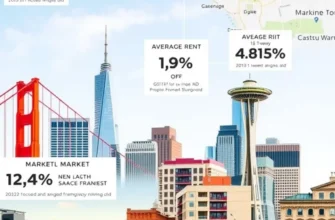Relocating to a new city can be an exciting yet daunting experience, especially when it comes to finding the right apartment and navigating the complexities of city living. One often overlooked aspect is parking. Whether you’re a young professional settling into a vibrant neighborhood, a student ready to embrace campus life, or a family searching for the perfect home, parking plays a crucial role in your living experience. Understanding the local parking landscape is important, as it can greatly affect your daily routine, finances, and overall quality of life. From deciphering parking regulations to finding the best parking facilities, this guide offers practical tips tailored to various lifestyles, helping you feel at home wherever you end up. Join us as we explore what urban parking looks like in some of America’s busiest cities and equip yourself with essential knowledge to tackle apartment parking effectively.
Understanding Parking Regulations and Permits

Navigating parking regulations in major U.S. cities can feel like deciphering a complex puzzle. Each city has its own set of parking rules, and understanding them is crucial for any renter. These regulations are crafted to balance the needs of residents, businesses, and visitors, often varying from one neighborhood to another.
In urban areas, street parking can be a premium commodity. Cities typically enforce strict parking regulations with designated zones, metered spaces, and specific time limits. Failure to comply can result in hefty fines and inconveniences. Therefore, familiarizing yourself with these rules can significantly simplify your daily routine.
One common requirement is the need for residential parking permits. These permits are designed to prioritize parking for residents in areas with high demand. For instance, in cities like San Francisco and Boston, permits are often required to park on residential streets beyond a certain time limit. This policy helps local residents by reserving ample space for their vehicles, though it requires renters to apply and pay for these permits. Knowing the process and applying promptly will save you from unnecessary parking headaches.
When selecting a neighborhood, assess its parking culture. Research if residential permits are needed and how they are enforced. This information is typically available on city government websites. For example, Boston’s transportation department offers detailed instructions on obtaining and renewing permits.
Parking regulations are not always about restrictions; sometimes, alternative options are provided. Many cities offer long-term public parking facilities at competitive rates. These are particularly useful in densely populated neighborhoods where street parking is scarce. Utilize these options as a backup if street or lot parking proves challenging.
Lifestyle differences across cities also affect parking. While a car may be essential in spread-out Austin, it might be less necessary in New York City, where public transport is more efficient. Considering your transportation needs can influence your accommodation decisions and avoid unnecessary costs tied to parking.
It’s important to note that regulations can change. Staying updated through local news or city department emails can keep you informed about new zones, rates, or enforcement policies. Engaging with local communities, such as neighborhood social media groups or forums, can also provide first-hand insights and tips from fellow residents.
Before committing to a lease, consider speaking to prospective landlords about parking options and requirements specific to their property. This can also include the availability of guest parking options, which can be a valuable asset for hosting visitors.
For those considering moving to Austin, additional parking tips and neighborhood insights can be found in this local guide. Gaining a comprehensive understanding of parking dynamics will not only ease your daily commute but also allow for a more relaxed and enjoyable city living experience.
Finding the Right Parking Solutions for Your Lifestyle

Urban dwellers know the struggle of finding suitable parking spaces. Depending on your lifestyle, the available options can vary vastly. Whether you’re a student in Chicago, a busy professional in San Francisco, or a family in Atlanta, finding a parking solution that aligns with your daily routines and budget is crucial.
Campus-Savvy Students
Students residing in college towns like Chicago often weigh the pros and cons of street parking versus private lots. Street parking offers flexibility but often requires patience as spaces are competitive. Consider whether your schedule allows for the time it takes to circle for an open spot. Alternatively, renting a space in a private lot can be costlier but saves time during exam season.
Busy Professionals in Tech Hubs
In tech-heavy cities like San Francisco, professionals may benefit from parking solutions that align with fast-paced urban living. Private parking facilities can offer the convenience of reserved spaces but finding ones near your office requires some research. Leveraging parking apps can also provide great deals and help locate available spots in densely populated areas.
Family-Friendly Parking in Atlanta
Families in cities like Atlanta need flexible parking that accommodates multiple vehicles. Community garages are an option, offering access to shared spaces within residential complexes. Look for parking agreements that allow guest parking permits for family visits. Evaluating the proximity to your apartment can also ensure ease during school drop-offs or grocery runs.
Technological Innovations
Parking apps have revolutionized city living by allowing real-time updates on available spaces around the city. These apps can reduce the time spent searching for parking, often providing maps and reservation capabilities. Additionally, car-sharing services offer solutions for those who prefer not to own a personal vehicle, thus eliminating the need for permanent parking.
Budget-Friendly Tips
Parking costs can quickly add up, especially in areas with hourly parking fees. Consider looking for monthly parking deals which often offer discounts compared to daily rates. Exploring local forums or community boards can yield hidden gems where parking is more affordable. Long-term strategies like budgeting for parking expenses should be part of your financial planning as a renter.
Finding the right parking for your lifestyle necessitates a keen understanding of both your needs and the available options. Weighing the benefits of convenience, cost, and accessibility will guide you to a solution that complements your urban living experience.
Final words
Navigating city apartment parking can feel overwhelming at first, but with the right knowledge and tools, it becomes manageable. By understanding local regulations and exploring solutions tailored to your lifestyle, you can find convenient parking options that make city living enjoyable. Remember, every city is different, so take the time to research and engage with your new surroundings. Whether you are a student, a young professional, or a family, mastering parking can open up a world of convenience and make your urban experience fulfilling. Embrace the change and thrive in your new environment.









